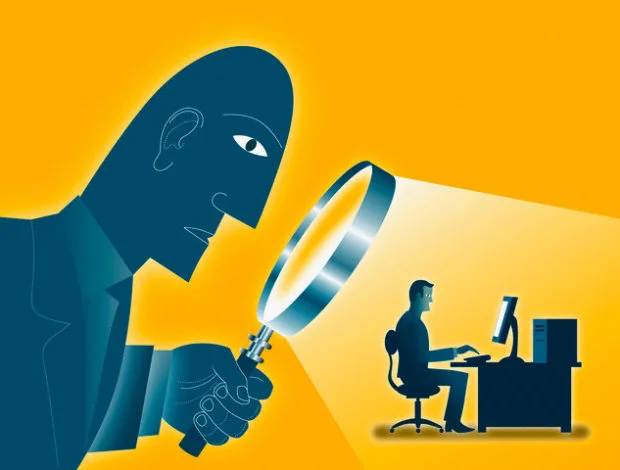The U.S must let China fall victim of its quick rise trap
China has transformed itself from a formidable economic adversary to a feared powerhouse in the public imagination. Washington has descended into near-panic. Last month, a rare bipartisan Senate supermajority passed legislation aimed at matching the Chinese Communist Party’s alleged economic superiority.
Policymakers should regain their composure. The CCP is commemorating its centennial but has little to celebrate. It gained power solely as a result of the errors of others. It made egregious mistakes in managing China’s economy and society. Today, its ostensibly foresighted authorities are imposing suffocating authoritarian regulations that jeopardize China’s future development. The United States of America should not be terrified.
One hundred years ago, thirteen delegates gathered in Shanghai for the CCP’s First National Congress. The party, however, was reliant on the Soviet Union for support. Even more significant was Imperial Japan’s contribution. The latter’s invasion diverted Nationalist commander Chiang Kai-shek’s attention away from planned battles against the CCP and squandered his best troops. Mao Zedong amassed his forces in preparation for the impending civil war.
Mao was tenacious but lethal. During the PRC’s consolidation of power, millions died. Simultaneously, the infamous Great Leap Forward collectivizes agriculture and botches industrialization. The Great Chinese Famine from 1958 to 1962, brought about 36 million unnatural deaths.
The more Xi reinvents himself as Mao in politics, if not in policy, the more disastrous the outcome is likely to be. The United States should not follow the PRC’s lead.
Mao then subjected his people to the Great Proletarian Cultural Revolution, a bizarre concoction of party purges, civil conflict, ideological outbursts, and social ruin. Only his death in 1976 provided closure. Then Deng Xiaoping dismantled Mao’s economic and social life, liberating a productive people from dictatorial rule. China accelerated economic growth—and basically eradicated poverty, which afflicted an unbelievable 750 million people in 1990—and established a middle class in China. However, this accomplishment occurred not as a result of what Beijing did, but rather as a result of what Beijing did not do.
Nonetheless, some policies harmed economic improvements. The dictatorship instituted the so-called one-child policy in 1979. The repercussions were catastrophic. Today’s population is aging and declining, with a gender imbalance owing to rural men’s desire. As these concerns became more apparent, Beijing began changing its policy, initially allowing two children and then, beginning in May, three. Fertility rates, on the other hand, have remained relatively stable. By the end of the century, the population might be reduced by half to around 730 million people. Apart from the obvious economic and social ramifications, Xi Jinping appears to have cautioned party officials that demographic changes presented a threat to national security.
However, Xi and Co. continue to be fearful of ceding control. The Wall Street Journal reported: “Beijing has been reluctant to abandon birth controls altogether. Leaders are worried that a total relaxation in birth restrictions could encourage poorer families in rural areas to have many more children and thus exacerbate economic conditions in parts of the country that the government had recently lifted out of extreme poverty.”
Additionally, post-Mao China maintains tight economic control. For example, the PRC is ranked 124th in the globe by the Economic Freedom in the World Report. China performs particularly poorly when it comes to government size and regulation. For years, China’s growth was fueled by increased productivity rather than capital investment, as rural laborers transitioned to manufacturing. That easy source of expansion, however, came to an end with the aging and soon-to-be declining population.
Now, the PRC’s economy, which remains a statist one, will have to rely on other sources. For example, government firms account for almost a third of GDP, employ a disproportionate number of the workforce, and receive preferential treatment from state banks. Nonetheless, governmental activities are notoriously inefficient and have acquired considerable debt.
That is not all. Beijing’s influence over private enterprises has widened under Xi, as evidenced by the public gelding of Jack Ma and the Ant Group. Politicizing the fastest-growing sector will not be beneficial.
Finally, Xi’s relentless crackdown on dissent jeopardizes economic innovation. Beijing has launched a vicious national campaign against religious believers, human rights attorneys, independent journalists, contrarian academics, quarrelsome businesses, activist students, and the majority of other freethinkers.
China under Xi Jinping has developed into a Weltmacht, posing a tremendous threat to America. However, its claim to have established a political meritocracy is more rhetoric than fact, and the repercussions of its repeated attempts at harsh social engineering have ranged from ineffective to devastating. The more Xi reinvents himself as Mao in politics, if not in policy, the more disastrous the outcome is likely to be. The United States should not follow the PRC’s lead.




